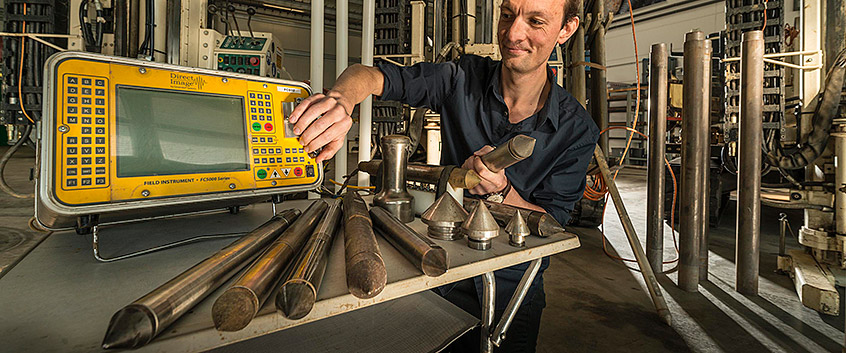
Department of Monitoring and Exploration Technologies
What happens beneath the Earth’s surface? Monitoring and exploration technologies are essential for the observation of both natural and anthropogenic processes and their impacts in the subsurface. Monitoring data contribute substantially to the development of scientific models depicting natural systems. A particularly important part of this process is the further development of efficient, high-resolution monitoring methods to identify and parameterize relevant physical and chemical processes.
There are processes in the environment which require a continuous monitoring of process-relevant parameters over space and time for an adequate modelling of these natural systems. The consistent parameterization of relevant physical, chemical and biological processes and progress in the development of complex models necessitate a range of data at different scales.
The further development of adaptive concepts is very important for the multiscale investigation of complex heterogeneous environmental systems. The Department therefore brings together expertise from several different areas, such as hydrogeology, direct-push technology, geophysics, on-site analysis, sensor development and the analysis and optimization of multivariate data. We develop and validate monitoring strategies through various field studies to monitor processes and conditions, for example natural and anthropogenic processes in different environmental realms over long time periods. The implementation of ad hoc wireless sensor networks and of data integration is also important for these activities.
The Department MET aims to develop and test application-oriented methods, technologies and strategies to observe and monitor the natural and anthropogenic environment and the processes of interaction between soil, water and air. Therefore, a wide variety of methods from geophysics, such as hydrogeology, chemical analytics, remote sensing, sensor technology and data analysis, are combined allowing an efficient and target-oriented investigation and evaluation of environmentally relevant issues and sites.
